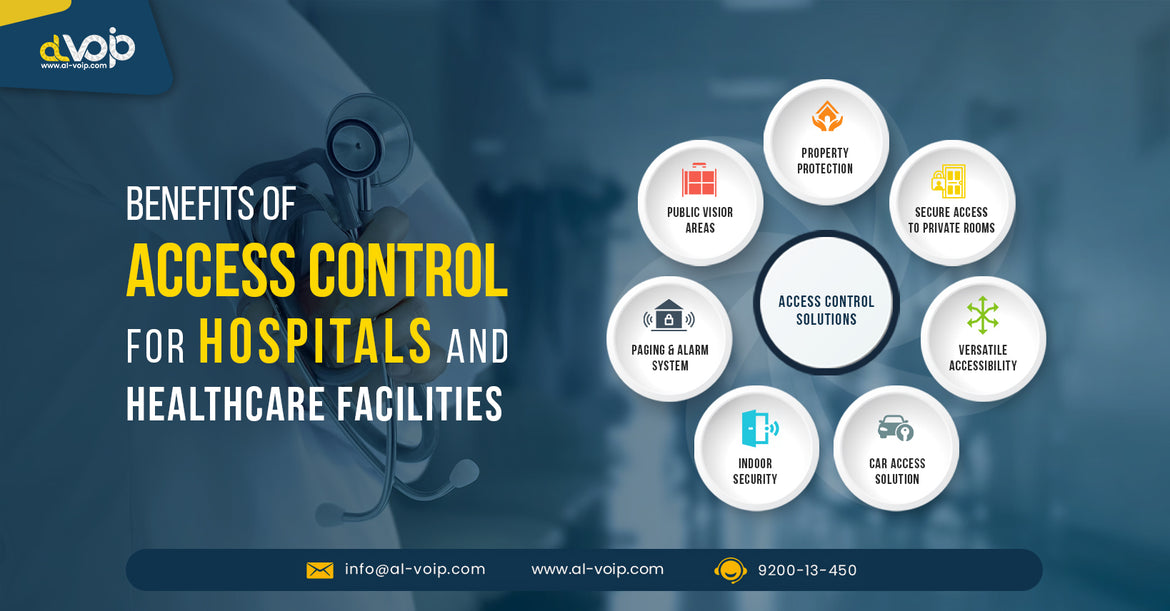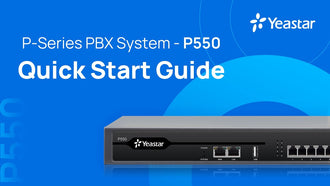

How Access Control Solutions Enhance Hospitals and Healthcare Facilities?
- 18 Oct, 2023
Keeping patients, employees, and sensitive data safe and secure is essential in the continuously changing healthcare environment of today. For hospitals and other healthcare facilities, access control solutions have become a vital tool for streamlining operations, safeguarding priceless assets, and promoting a secure atmosphere.
This blog post will examine the benefits that access control solutions provide for various healthcare departments.
- Property Protection: A variety of priceless items, such as drugs, medical equipment, and private patient data, are kept in hospitals. Because they prevent illegal access to sensitive places, access control systems are essential to protecting these assets. Hospitals can lower the risk of loss, abuse, or unauthorized access by efficiently monitoring and controlling access to important zones through the use of technologies like key cards, biometric authentication, and surveillance cameras.
- Secure Access to Private Rooms: Confidentiality and privacy are core concepts in the medical field. Hospitals may guarantee that only authorized staff have access to private spaces, like operating rooms, patient wards, and intensive care units, by using access control technologies. Hospitals may safeguard patient privacy, stop illegal entrance, and keep staff, physicians, and nurses safe by putting access control systems in place.
- Indoor Security: Access control systems improve interior security in healthcare institutions in addition to safeguarding physical areas. Hospitals can monitor key areas, identify illegal activity in real time, and react quickly to possible security concerns by integrating access control systems with cameras and intrusion detection devices. The healthcare facility's overall safety and security posture is improved by this comprehensive strategy.
- Public Visitor Areas: In healthcare facilities, controlling visitor access is a major concern. Hospitals can enhance visitor control, monitoring, and tracking by implementing visitor management systems with the help of access control solutions. Hospitals can limit access to designated areas and keep patients and employees safe by providing visitor badges. These systems can also trace visitors in real time, which guarantees accountability and enhances emergency response capabilities.
- Versatile Accessibility: Healthcare institutions have a variety of needs, and access control systems are made to meet those needs. They can be tailored to provide varying degrees of access to different staff members, such as physicians, nurses, secretaries, and support staff. In addition, these solutions make it easier for contractors, vendors, and other temporary employees to have access temporarily, guaranteeing smooth operations while upholding security procedures.
- Paging and Alarm System Integration: Combining access control systems with paging and alarm systems adds an extra degree of security and preparedness for emergencies. Access control systems can sound alarms, start lockdown procedures, and notify the appropriate individuals in the case of an emergency or security breach. This integration reduces potential risks in urgent situations, improves communication, and enables quick responses.
- Car Access Solutions: Hospitals may guarantee safe vehicle access and exit, stop illegal parking, and improve overall traffic management by putting into practice technology like mobile credentials, proximity cards, and automatic license plate recognition. This enhances the patient experience and raises the healthcare facility's general level of efficiency.








